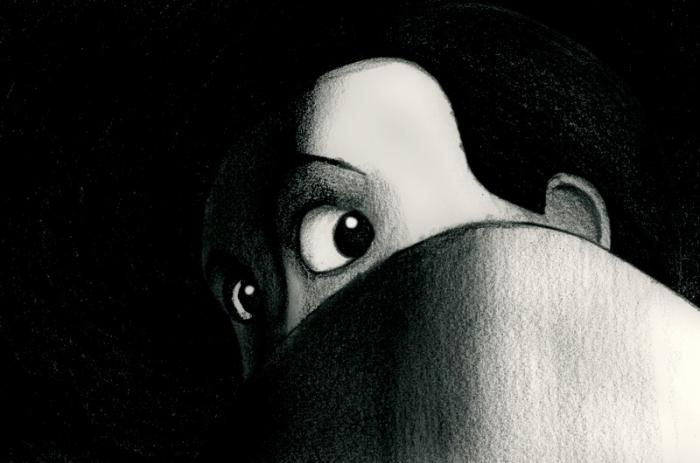TO FEAR, OR NOT TO FEAR
- Charles
- 24 juin 2023
- 4 min de lecture
Reflections for the Twelfth Sunday in Ordinary Time: Jeremiah 20:10-13, Romans 5:12-15, & Matthew 10:26-33
“Fear no one”, says Jesus while also adding, “Be afraid of the one who can destroy both soul and body”. To fear, or not to fear, that is the question. The response lies in the nuanced difference between two kinds of fear: godless fear and godly fear.

1. Godless fear hinders faith, while Godly fear enables faith: When Peter starts walking on the water in Matthew 14:29-30, he becomes aware of the strength of the wind, panics, and begins to sink. The response of Jesus is quite startling: “You of little faith, why did you doubt?”. Does Jesus mean that Peter faltered in his faith because he panicked in the face of danger? It is interesting to note that Peter actually walks on the water when his gaze is fixed on Jesus. It is when his attention turns to the strength of the wind that he begins to sink. Godless fear traps us into treating difficulties, threats and risks as absolutes. This sort of fear hinders the process of faith since God is no more God! In order to overcome this godless fear, Jesus points to a useful kind of fear that can help us face the most difficult of situations. He says, “Fear the one who can destroy both soul and body in Gehenna”.

The remedy that Jesus proposes for us to overcome godless fear is to realise that no threat is bigger when viewed in relation to God’s sovereignty and His Fatherly care. In saying this, Jesus does not dismiss the seriousness of the risks that face us. He instead relativises it by seeing it in relation to God’s trustworthiness. Fear is natural, justified and even godly when it is a reflexive response than a choice. We do not choose to be afraid. Faith, on the other hand, is a choice to be made. We choose to trust in God’s care, even when the light at the end of the tunnel is not too evident. This choice is informed by the experiential knowledge that ultimately God is in charge. Godly fear is the realisation that God is absolute. Godless fear is the absolutisation of a danger over our trust in God’s providence. Godly fear inspired Peter to keep his gaze fixed on Jesus and helped him walk on the water. Godless fear distracted him to focus on the strength of the winds and he began to sink.
2. Godless fear paralyzes, while Godly fear liberates: In the first reading, we meet Jeremiah, famously dubbed the “weeping prophet” for many understandable reasons. He is constantly crying, even wishing that his eyes were a fountain of tears for him to weep day and night (9:1). His teachings were mostly of doom and gloom and his judgements were quite harsh. It is for a reason that the book of Lamentations, though nameless, is popularly attributed to Jeremiah. This ‘negative’ aura that surrounds the prophet is understandable when we relate his prophetic mission to its context. Being the last prophet of Judah before the Babylonian captivity, he had to warn his people about the impending danger and call them to reform. However, everyone including his neighbours, political leaders, fellow priests, and even family members wanted him dead.

It is in this context that Jeremiah narrates the terrors, whisperings, and denouncements that threaten his life. Jeremiah, however, does not allow these potentially serious dangers to paralyze his mission. Though he constantly battles with threats from murderous kings and captains in his ministry of reform and denunciation, he never dilutes the ruthlessness of the message that God had inspired him to deliver. His Godly fear for the ‘Lord of the hosts’ liberates him not only from fear but also from hopelessness. In chapters 30 to 33, Jeremiah speaks of the restoration of hope while stuck in a dark dungeon with three feet of slim mud that saw a faint trickle of daylight only once a day. Stuck in a depressing pit, Jeremiah writes the liberating message of the new covenant and the new law.
3. Godless fear focuses on power while Godly fear points to love: Godless fear is incited by control, violence and the fear of harm that the ‘powerful’ one can cause to us. Godly fear, in the biblical sense, is not forced by power. It is born out of respect and affection, a sense of wonder before the majesty of God and a spontaneous filial willingness to obey him. It is a free response to a loving Father, who cares about us so much that he counts the hairs of our heads. If our provident God cares for a sparrow so much that it cannot fall to the ground without His knowledge, how much more would he care about those whom he created in His own image and likeness?

Godly fear challenges us to liberate our relationships from the dynamics of power and make love the foundational principle of our lives. This shift from the love of power to the power of love is key to ‘fearless’ love in our families and societies. Let us reject the godless fear that hinders our faith, paralyzes our mission, and imprisons us in power struggles. We are called to embrace the goldy fear that enables us to trust, liberates us to fulfil God’s purpose for our lives, and enables us to truly and freely love.




Commentaires